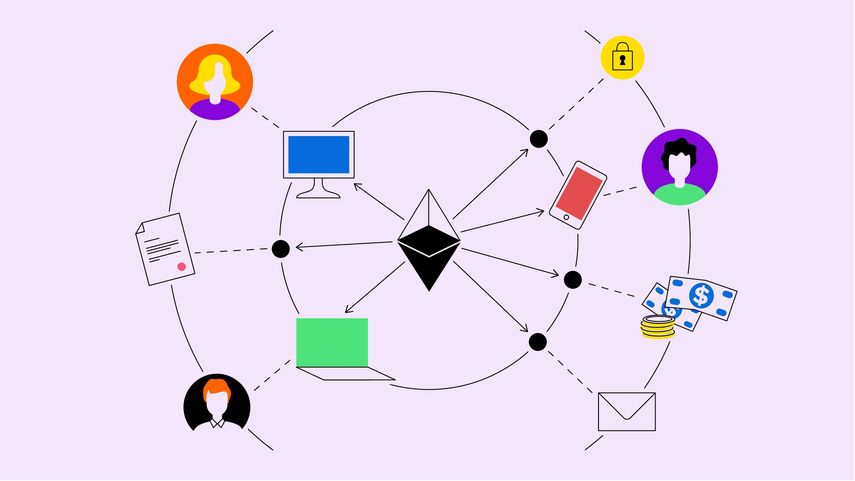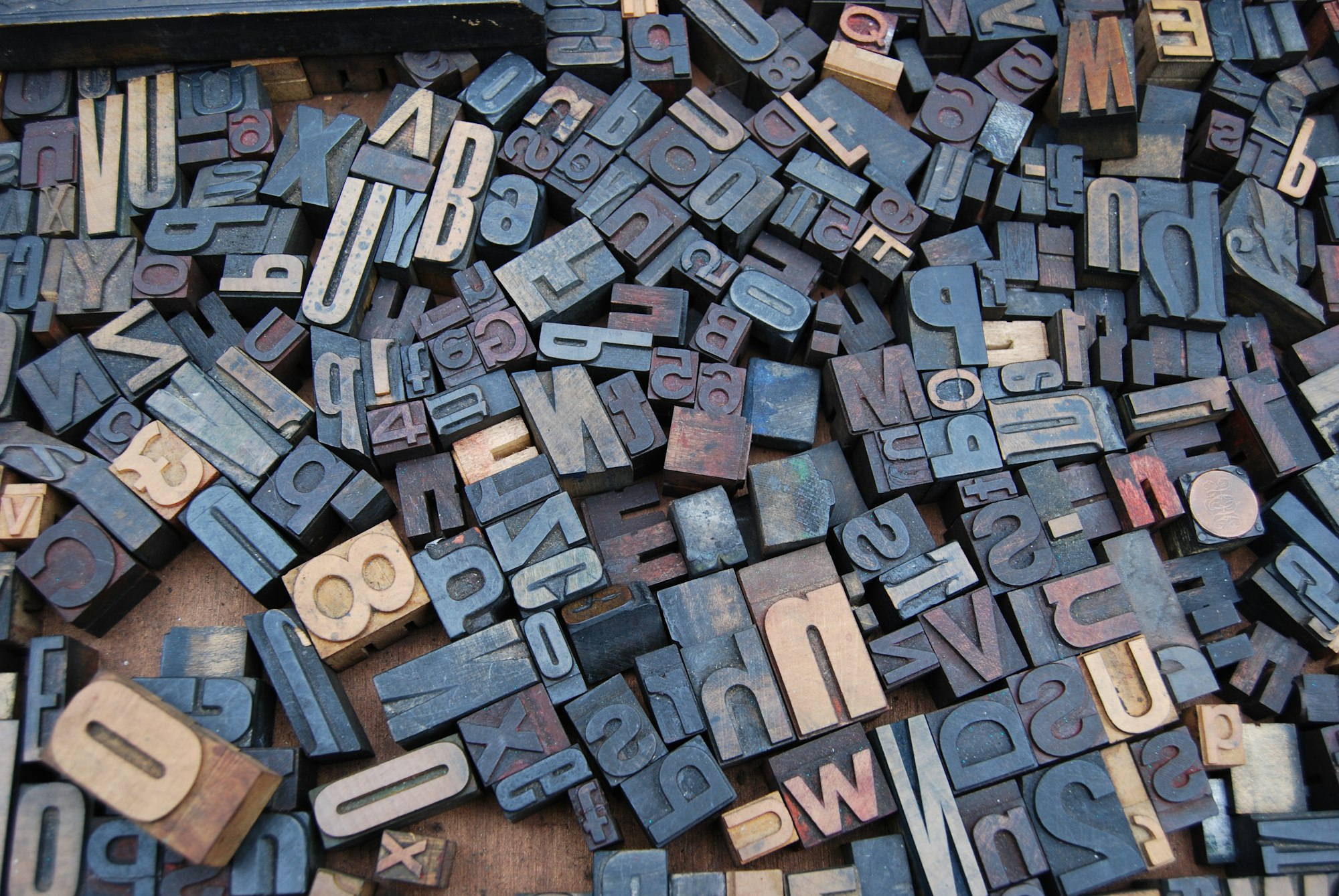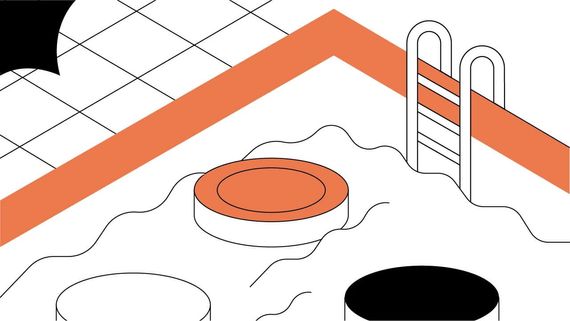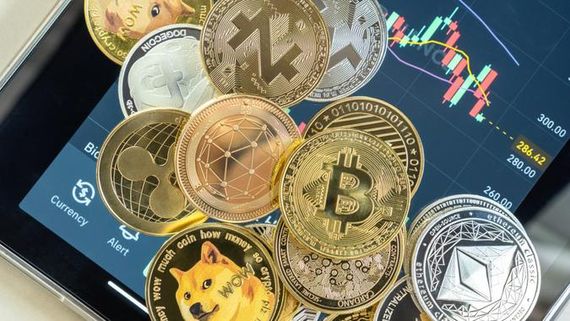What are Dapps? All you need to know about the Decentralized Applications
Dapps (Decentralized Applications) are the apps that run on the blockchain.
They are digital programs that have an open-source code and host their distribution on P2P networks.
Dapps enjoy complete freedom, ultimate privacy, and indomitable security in their performances, updates, and functioning.
Thanks to their distributive ledger of operations, they eliminate the central authority (person or a group) and support community verification and validation for their existence.
What does Dapp mean? Definition of a Dapp
Dapps are similar to an android or an app store application that we frequently use on our smartphones. The only significant difference between an App and a Dapp is,
Apps require a centralized system to control their entire functioning while
Dapps do not require a centralized authority to control or restrict their operations. They function through smart contracts, which are open-source and accessible to everyone.
Dapps are nothing but evolving apps that are more secure, more scalable, and more immutable.
What are Smart Contracts?
The smart contract is the microprogram situated inside a block that functions as the consensus mechanism for Dapps.
They are an integral part of the blockchain, which records every transaction on the platform.
They reside on a specific blockchain address containing the collection of codes (function) and data (state).
Due to their decentralized characteristics, they are becoming popular in every working segment. They wipe out a white paper contract and replace it with a digital contract that instantly records, verifies, and executes according to the required terms and conditions. They also automatically neutralize their functions if the transaction is not met according to the contract.
Pretty simple!
What are the examples of Dapps?
- Uniswap - A decentralized finance protocol created to exchange cryptocurrencies using smart contracts. Uniswap helps to automate the transaction process by issuing cryptocurrency tokens.
- Augur - Augur is a decentralized app that helps traders get their trades right by forecasting better predictions for trading gains.
- Axie Infinity - An online game created on cutting-edge blockchain technology using non-fungible tokens and Ethereum cryptocurrency. Currently the most popular decentralized gaming collection.
- Decentraland - Decentraland is a 3D virtual reality platform based on the ethereum blockchain, which helps users purchase virtual land and build their virtual reality applications. It also supports monetizing those applications.
- Matcha - Matcha is a crypto trading platform that helps you find different exchange prices across the crypto network and assemble the best prices in one trade.
What are Dapps used for?
Like traditional apps, Dapps can create banks, financial models, DAOs, prediction markets, social networks, gaming, marketplaces etc. However, their decentralized properties are fostering global investors’ interest in creating valuable dapps that are user-friendly, technologically compatible, and secure.
The purpose of dapps will keep changing and advancing according to time, but the core principle of keeping them distributed, decentralized, and immutable will be intact.
We can expect different dapps that will serve as a perfect alternative for today’s trending and valuable apps.
How do dapps work?
Dapps are new to the technological world. Their applications are still limited to the Decentralized Financial (DeFi) segment. Nevertheless, they are expanding to more and more industries where transparency and privacy are of utmost importance.
Here is a typical dapp working process:
- A dapp runs on a back-end code which is typically a smart contract.
- This digital treaty helps the dapp to take performative actions according to the rules implied in the smart contract.
- If the smart contract requirements are met, a transaction takes place between a P2P network which is recorded, stored, and distributed permanently on a public ledger.
- The distributed public ledger restricts its modification with its unique cryptographic hash function that makes the dapps indestructible and irreversible.
- If the target is not met, the transaction neutralizes and returns to the initial state.
Benefits of Dapp development
Dapps are packed with multiple benefits that traditional apps fail to provide. Some of the most popular benefits of developing a dapp, both for a user and the consumer, are:
- Censorship Free: Since its distributive nature, no single entity controls and dominates a dapp. A dapp is developed by a developer and managed by the community of users.
- Minimum Downtime: The public ledger is distributed globally and sources computational power through global computers, constantly up and working. It prevents downtime of a dapp than that of an app located on a centralized data center.
- Open Source:
- Dapps are open to all.
- Their open-source code makes them easily accessible to anyone on the platform.
- Developers can apply existing smart contracts to their dapps.
These instill top-of-the-line security with zero margins of error. - Operates Autonomously: Once a dapp is set in motion, it runs independently without external tampering or third-party involvement.
- No Single Entity: Dapps are the chain of autonomous networks. Hence they do not depend on hierarchical entities to make decisions or change conditions. They function on “If and Then” mechanisms that do not require external suggestions.





